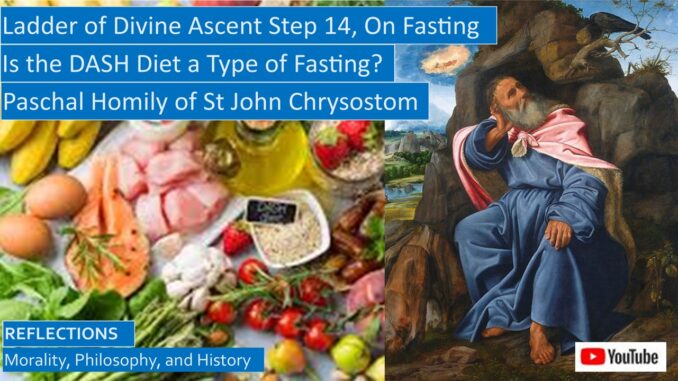
What can we learn as we reflect on climbing the fourteenth rung of the Ladder of Divine Ascent on Gluttony and fasting?
Why does St John Climacus see gluttony the chief passion?
Could the modern DASH diet be considered a type of fasting?
Should we fast to improve our soul? Or should we fast to improve our health?
Jesus assumed that we should fast. Is fasting optional?
Do we need to be moderate in our eating, as well as in our fasting, and in our preparations for the fast?
YouTube Script with Book Links:
https://www.slideshare.net/BruceStrom1/healthy-dash-diet-and-st-john-climacus-ladder-of-divine-ascent-gluttony-and-fasting-step-14
YouTube video for this blog: https://youtu.be/KM0eMjE1fXc
GLUTTONY, THE CHIEF OF PASSIONS
Earthly passions, if we do not control them, can lead us to selfishness, can lead us away from selflessness, can cloud the way to our salvation, and can prevent us from loving our neighbor as ourselves. St John Climacus teaches us that the primary passion is gluttony, the gluttony that keeps us from eating a healthy diet, that keeps us from eating in moderation.
In ancient and medieval times, you regulated your diet by fasting. Like eating, fasting should be practiced in moderation, there were saints who may have ruined their health through excessive fasting, including St Bernard of Clairvaux.[1] In both the ancient desert monasteries and the stricter medieval monasteries, the monks were given strict portions at mealtime in addition to following the fasting regimen of the church.
Fasting was not occasional; fasting was a way of life. In the Sermon on the Mount, Jesus first instructs us how to pray, then he exhorts us: “When you fast, do not look dismal, like the hypocrites, for they disfigure their faces that their fasting may be seen by men. Truly, I say to you, they have their reward. But when you fast, anoint your head and wash your face, that your fasting may not be seen by men but by your Father who is in secret; and your Father who sees in secret will reward you.”[2]
In this verse, Jesus does not say: You should fast; but rather Jesus exhorts us, “When you fast,” you fast for God, you fast in secret, you do not fast for the approval of men, so everyone can notice how devout you are. False devoutness is pernicious pride.
MODERN HEALTHY LIVING: THE DASH DIET, EXERCISE, AND SLEEP
How should we fast, we who benefit from medical knowledge that was unknown or unclear to both the ancient and medieval worlds? When doctors tell us how to live healthy lives, this is also a type of fasting. What is the cure for all diseases? The big three cures are: Eat Right, Exercise, and Sleep until you are refreshed, and many would add: have a social life, do not spend your life watching television. If we could transport the saints of ages gone by to the current day, I am sure they would agree.
My story is a decade or so ago, in my mid-life, I went to my annual checkup, and the doctor told me that my triglycerides were way too high. This doctor, and later Dr Google, informed me that I was consuming too much food with starches and sugars. High triglycerides and high cholesterol go hand in hand, if you improve your habits, you can lower both. He warned me especially not to drink fruit juices. You can eat an orange or grapefruit, but drinking a glass of fruit juice is like eating a dozen oranges, which is way too much sugar. And my doctor said, no problem, fill this prescription for medication to lower your triglycerides.
But I asked Dr Google for more advice on how to eat healthily, and for the next six months, I ate as healthily as possible, implementing the DASH diet. Also, if you have high cholesterol and high triglycerides, you can also study the diabetic diets, as they are similar. As a by-product, I also lost about thirty pounds. At my next appointment, the nurse asked me, How are you doing with your prescription? I answered that I didn’t fill it. The doctor said no problem, let us update the blood tests.
Implementing the DASH diet meant that my triglyceride and cholesterol counts plummeted by half to a decidedly healthier range. As I aged, the numbers have crept back up, but I have not had to take the cholesterol medications quite yet. These medications have tons of warnings and possible side effects. It is better to control your numbers by diet alone, if you can, but not everyone can.
Supposedly the DASH diet also controls high blood pressure, and I have started taking the medication for high blood pressure, but in my experience, diet does not affect high blood pressure as directly as it ameliorates high cholesterol and high triglycerides.
DASH DIET: My summary:
- Eat mostly fish, chicken, and turkey. Avoid beef, and most especially, avoid lamb. Lamb is so rich you gain weight thinking about eating it.
- Replace bread and starches with vegetables and brown rice. Avoid sandwiches.
- Eat fruit for dessert. Avoid fruit juice and soda pop.
- Eat a capful of mixed nuts or peanuts every day.
- Limit sweets and salt, but if you sweat and exercise, or bike long distances as I do, Gatorade and salt help you hydrate. [3]
And also, in addition to the DASH diet,
- Constantly be sipping a bottle of water, this helps prevent leg cramps,[4] kidney stones,[5] and urinary tract infections.[6]
- But: most people can eat what they like once a week, except for dessert, in moderation. Drink alcohol in moderation.
- If you can’t do without ice cream and sweets, splurge once a month. Flavored yogurt is better than ice cream, not so much because of its probiotics,[7] but because it comes in smaller containers.
The purpose of the DASH diet is not to lose weight, the purpose of the DASH diet is to become and remain healthy, which means you should keep the DASH diet until the end of your days, it is a permanent change of habit. Eating in moderation is essential to both the DASH diet and fasting in general. You should consult your physician and dietician for advice on modifying your diet if your medical situation differs. Personally, when I was younger, I could lose weight solely by eating right, but as the years fall behind me, I have had to control both the portions and the healthiness of what I eat. But if you think the DASH diet is too strict, I warn you: Everyone, without exception, who chooses not to follow the DASH diet, eventually dies.
FASTING IN THE MODERN CHURCHES
Fasting is not a part of most Protestant churches. When they do fast, they usually fast occasionally, either drinking only water or consuming only bread and water, for one or several days as a special spiritual experience, including prayer.
The modern Catholic Church has not included fasting in normal lay practice, and how or if fasting is practiced among Catholic monastics likely varies by the monastic order, and also by the community. Limited fasting during Lent has been neglected, now the refrain is for everyone to choose what they will fast from, whether it be movies or chocolate, or all too rarely, television.
Fasting is practiced in all the various Christian Orthodox churches. Orthodox Christians fast every Wednesday and Friday, and in particular seasons of the Church calendar, sometimes meat is excluded, sometimes meat and fish, sometimes oil and cheese, and fasting is stricter during Lent. Searching for substitutes to keep your meals tasty misses the spiritual point of the fast.[8]
As I reflected on my personal and YouTube channel philosophy, during my faith journey I have experienced many of these faith traditions, though I have been reluctant to abandon one faith tradition for another in haste. Even if fasting is not part of your faith tradition, you should at least follow a diet like the DASH diet so you can be healthy, and you can benefit from the spiritual message of St John Climacus in his teachings on how we should avoid gluttony.
STEP 14 OF THE LADDER OF DIVINE ASCENT: GLUTTONY
St John Climacus sees gluttony as chief among the passions. Father Vassilios Papavassiliou teaches us that “passions are not mere actions but are conditions of soul and body that distort our relationship not only with our fellow human beings, but also with our natural environment and our own bodies.”
Father Vassilios observes that St John Climacus speaks of the gluttonous spirit. Although gluttony is a physical sin, it also poisons our spiritual life. He teaches us that “we cannot sharply distinguish between body and soul, since there is nothing human beings can do without both of these together. Thus, physical sins have a spiritual dimension.”[9]
Discipline is the core of the Christian life. Through discipline, we root out selfishness. Through discipline, we water and grow our Love for God and our love for our neighbor. Will your habits be good habits or bad habits? St John Climacus speaks of gluttony:
Step 14.36. “The cause of my insatiability is habit. The foundation of my passion is repeated habit, insensibility of soul, and forgetfulness of death.”[10]
Fasting is not the goal, salvation is the goal, the salvation we achieve in our soul when we truly Love God and love our neighbor as ourselves.
Step 14.7. St John Climacus rues that the monk who is a glutton “counts beforehand the days till Pascha,” or the Easter feast, “and he prepares the food for it several days in advance.”
St John Climacus is referring to the Orthodox practice of breaking the strict Lenten fast with a feast prepared after the Pascha night service. He continues:
“The monk, who is a slave of his belly, calculates with what dishes he will celebrate the feast, but the servant of God considers with what spiritual gifts he may be enriched.”[11]
Father Vassilios comments that many Orthodox fall into the spiritual trap of “becoming so obsessive about observing the rules of the fast that they spend a great deal of time examining ingredients when shopping and are constantly thinking about what they can and cannot eat.” They “are more concerned with food during the fast than they are the rest of the time, which contradicts one of the purposes of fasting: to attach less significance to food, not more.” [12]
But a few pages later, Father Vassilios comments that we should, indeed, enjoy the breaking of the fast and feast in moderation, just as we should eat, and fast, and prepare for the feast, in moderation. “To let the Great Feasts pass us by” “is to lose the fullness of spiritual life and of Christian celebration.”[13]
PASCHA HOMILY OF ST JOHN CHRYSOSTOM
St John Chrysostom, highly esteemed in both the Catholic and Orthodox Church, addressed another issue he confronted in his parishes at the Pascha feast. The ancient church had the same problem as the modern church, there were many Christians who only attend church on Easter. No doubt some of the devout contested that those who did not attend church during Lent, and who did not keep the Lenten fast, should not be allowed, or not be welcomed, to the Paschal feast after the service, since they did not do the work. This problem was solved by his Paschal Homily, which was based on Jesus’ parable of the workers in the vineyard, which promised salvation to all, to both those mature in the faith as well as those new to the faith.
Jesus told this parable: “For the kingdom of heaven is like a householder who went out early in the morning to hire laborers for his vineyard. After agreeing with the laborers for a denarius a day, he sent them into his vineyard. And going out about the third hour he saw others standing idle in the marketplace; and to them, he said, ‘You go into the vineyard too, and whatever is right I will give you.’ So, they went. Going out again about the sixth hour and the ninth hour, he did the same. And about the eleventh hour he went out and found others standing; and he said to them, ‘Why do you stand here idle all day?’ They said to him, ‘Because no one has hired us.’ He said to them, ‘You go into the vineyard too.’”
The parable continues, “And when evening came, the owner of the vineyard said to his steward, ‘Call the laborers and pay them their wages, beginning with the last, up to the first.’ And when those hired about the eleventh hour came, each of them received a denarius. Now when the first came, they thought they would receive more; but each of them also received a denarius. And on receiving it they grumbled at the householder, saying, ‘These last worked only one hour, and you have made them equal to us who have borne the burden of the day and the scorching heat.’ But he replied to one of them, ‘Friend, I am doing you no wrong; did you not agree with me to work for a denarius? Take what belongs to you and go; I choose to give to this last as I give to you. Am I not allowed to do what I choose with what belongs to me? Or do you begrudge my generosity?’ So, the last will be first, and the first last.”[14]
Another practical reason for a short Paschal homily is that the Orthodox liturgy is long, much longer than services in most denominations with fixed services, and the modern Pascha liturgy is one of the longest. The main Pascha liturgy begins on Saturday night, the church is dark, with minimal lighting, an life size icon of the deceased Christ is laid on the altar as if it were a tomb, and the solemn part of the service, after many readings and chanting, is concluded by the congregation marching around the church three times. They halt at the front church door, and the leader bangs on the church door three times: Who is knocking at the door?
After that the door is opened to a brightly lit church, with Easter flowers announcing the resurrection of our Lord on Easter morning, and the second half of the service is joyous, and since it is short, the congregation stands for St John Chrysostom’s Pasca homily:
St John Chrysostom teaches us: “If any be devout and God-loving, let him enjoy this fair and radiant triumph. If any be a good and wise servant, let him enter rejoicing into the joy of his Lord. If any be weary of fasting, let him now receive his reward. If any have labored from the first hour, let him receive today his rightful due. If any have come at the third hour, let him feast with thankfulness. If any have arrived at the sixth hour, let him in no wise be in doubt, for in no way shall he suffer loss. If any be delayed even until the ninth hour, let him draw near, doubting nothing, fearing nothing. If any have tarried even until the eleventh hour, let him not be fearful on account of his lateness; for the Master, Who is jealous of His honor, receives the last even as the first.”
St John Chrysostom continues: “Christ gives rest to he who arrives at the eleventh hour, as well as to him that has labored from the first hour; and to the last He is merciful, and with the first He is pleased; to the one He gives, and to the other He bestows; and He receives the works and welcomes the intention; and the deed He honors, and the offering He praises. Wherefore, then, enter you all into the joy of your Lord; both the first and the second, both rich and poor, receive your reward, all should exalt the Lord.”
St John Chrysostom concludes: “You who are sober, and you who are slothful, honor the day. You who have kept the fast and you who have not, be glad today. The table is full-laden, delight You all. The calf is fatted; let none go forth hungry. Let all enjoy the feast of faith, receive all the riches of goodness. Let no one bewail his poverty, for the universal kingdom has been revealed. Let no one weep for his transgressions, for forgiveness has dawned from the tomb. Let no one fear death, for the death of the Savior has set us free.”
St John Chrysostom continues: “Christ has quenched death, He has made Hades captive, He Who descended into Hades. He embittered it when it tasted of His flesh. And foretelling this, Isaiah cried: ‘Hades,’ he proclaimed, ‘was embittered when it encountered You below.’ Death was embittered, for it was abolished. Hades was embittered, for it was mocked. Death was embittered, for it was slain. Hades was embittered, for it was overthrown. Death was embittered, for it was fettered. It received a body and encountered God. It received earth and met heaven. It received that which it saw, and fell to what it did not see. O death, where is thy sting? O Hades, where is thy victory?”[15]
WHAT IS THE POINT OF FASTING?
What is the point of fasting? If fasting is engrained in our daily routine, then our life is not spent ceaselessly seeking pleasure, seeking the drink, juicy steaks, caresses, using others for mere moments of pleasure. The scriptures bid us to pray without ceasing, and we balk, but is not our continual search for pleasure an unceasing demented prayer?
Let us look at St John Climacus’ definition:
Step 14.33. “Fasting is the coercion of nature and the cutting out of everything that delights the palate, the excision of lust, the uprooting of bad thoughts, deliverance from incontinence in dreams, purity of your prayer, the light of the soul, the guarding of the mind, deliverance from blindness, the door of compunction,” or repentance “a humble sighing, a guard of obedience, a cessation of chatter, a cause of stillness, a guard of obedience, lightening of sleep, health of body, agent of dispassion, remission of sins, the gate of Paradise and its delight.”[16]
Through humble sighing, our slight hunger pangs remind us to be watchful, and our discipline should not be overly severe because we want our fasting to lead to glad contrition, improve our health, not ruin it, improve our disposition, not sour it, so through fasting we can be led to remission of sins, and the gate of Paradise and its delight, in this life as much as in the next life.
St John Climacus also cautions against keeping too strict a discipline:
Step 14.12. “Let us for a while only deny ourselves fattening foods, then heating foods, and only what makes our food pleasant. If possible, give your stomach satisfying and digestible food, so as to satisfy its insatiable hunger by sufficiency, so we may be delivered from excessive desire.”[17]
We probably do not want to follow the example of St Mary of Egypt, who took a year to eat a loaf of bread.[18] Rather than ignoring the fast, or starting an overly strict fast, we should simply follow the fasting calendar of the Orthodox Church.
One year I followed a strict Lenten fast, replacing eggplant with meat on all days of Lent, and decided to continue the fast after Lent so I would be observant without having to continually follow the calendar. Foolish me! After many months I had gained some pounds, and my doctor said I needed to quit filling up on carbohydrates, and so through the next Lent I was following doctor’s orders to eat meat occasionally, as indeed the fast prescribes.
St John Climacus warns us:
Step 14.10. “As long as the flesh is in full health, let us observe abstinence at all times and in every place.”[19]
This caution is repeated by St Benedict and all Orthodox priests: if your health is fragile, eat what you need to eat to keep you healthy. Jesus does not want you to damage your health by fasting. Jesus in Luke fasted for forty days in the desert, eating nothing, before he was tempted by Satan,[20] but we are not Jesus. In the modern Orthodox Church, there are no fast days where the faithful abstain from food entirely.
IS FASTING OPTIONAL?
Is fasting optional? If you are Orthodox, this could mean the church fast, or for anyone, this could mean a responsible diet like the forever DASH diet. Perhaps the better question is: Do you want to travel to heaven on the cheapest fare? Do you want to try to please God by doing only the minimum needed? Do you want to risk being drug off the Ladder by the demons into the abyss? Or do you want to take an expansive view of what God expects of you, affecting all areas of your life?
In its essence, fasting is eating in moderation, eating not for pleasure, but for maintaining your health. Fasting is adopting good habits, as St John Climacus teaches us:
Step 14.36. “The foundation of my passion is repeated habit, insensibility of soul and forgetfulness of death.” The first-born son of gluttony is “fornication, the second is hardness of heart, and the third is sleepiness.”[21]
In summary, Father John Mack teaches us that “all passions are interconnected. We cannot allow even one passion to be unrestrained. This is especially true of gluttony,” “the prince of passions.”
Father John Mack quotes several examples from St John Climacus:
- “If you struggle with unclean thoughts, remember:
The mind of someone intemperate is filled with unclean longings. - If you struggle with talking too much, remember:
The tongue flourishes where food is abundant. - If you struggle with a lack of repentance, remember:
A full stomach dries up one’s weeping. - If you struggle with sexual sin, remember:
The man who looks after his belly and at the same time hopes to control the passion of fornication is like someone trying to put out a fire with oil.”[22]
PAST AND FUTURE RUNGS OF THE LADDER
Each step of the Ladder of Divine Ascent builds on the prior steps, beginning with the first step, the renunciation of the world, which includes wise advice to laymen on how to live a godly life. This is followed by Detachment and Exile from the values of this sinful world, followed by the need for Obedience to the Law and the Gospel, and how we should be persistent in our Repentance, which we compared this struggle to the struggle of the Allies in fighting the Axis of Evil Fascism during World War II.
John Climacus: First Step of the Ladder of Divine Ascent
http://www.seekingvirtueandwisdom.com/st-john-climacus-first-step-on-the-ladder-of-divine-ascent/
https://youtu.be/Fco0W3bt5GA
St John Climacus, Ladder of Divine Ascent, On Detachment, Exile, and Pilgrimage, Steps 2 and 3
https://seekingvirtueandwisdom.com/st-john-climacus-ladder-of-divine-ascent-on-detachment-exile-and-pilgrimage-steps-2-and-3/
https://youtu.be/qDtrgYmaAQU
Ladder of Divine Ascent, St John Climacus, Rung 4 on Obedience
https://seekingvirtueandwisdom.com/ladder-of-divine-ascent-st-john-climacus-rung-4-on-obedience/
https://youtu.be/_bjQcNvzb-c
St John Climacus: Ladder of Divine Ascent, Step 5, Repentance, and Perseverance of Winston Churchill
http://www.seekingvirtueandwisdom.com/st-john-climacus-ladder-of-divine-ascent-step-5-repentance-and-perseverance-of-winston-churchill/
https://youtu.be/NiuWNsy4x4Q
This is followed by the steps on remembrance of death, joy-making mourning, and why we should battle despondency. We are then reminded that we should be free from anger, not holding grudges for the wrongs we suffer, and the strength of meekness. In the next step, we combat slander, lying, and gossip. In the step after gluttony and fasting, we ponder purity and chastity.
Ladder of Divine Ascent, Remembrance of Death, Joy Making Mourning, and Despondency, Steps 6,7, & 13
https://seekingvirtueandwisdom.com/ladder-of-divine-ascent-remembrance-of-death-joy-making-mourning-and-despondency-steps-67-13/
https://youtu.be/pFwC2nDf1CQ
St John Climacus, Ladder of Divine Ascent, Freedom from Anger, Meekness, Remembrance of Wrongs, Steps 8 and 9
https://seekingvirtueandwisdom.com/st-john-climacus-ladder-of-divine-ascent-freedom-from-anger-meekness-remembrance-of-wrongs-steps-8-and-9/
https://youtu.be/2mEjh425sJk
St John Climacus in Ladder of Divine Ascent on Lying, Talkativeness, and Slander, Steps 10, 11 and 12
http://www.seekingvirtueandwisdom.com/st-john-climacus-in-ladder-of-divine-ascent-on-lying-talkativeness-and-slander-steps-10-11-and-12/
https://youtu.be/SLBIdDHRy3A
DISCUSSING THE SOURCES
Both of these editions of the Ladder of Divine Ascent use the same translation, but each has its own thoughtful introductions, the introduction in the Classics of Western Spirituality is by Bishop Kallistos Ware. We find this work as easy to read as the works of the Stoic Philosophers that influenced Christianity and the monastic tradition, but we also have the commentaries by Father John Mack and Father Vassilios Papavassiliou, which are valuable because they reflect their experience as priests hearing confessions.
[1] https://www.britannica.com/biography/Saint-Bernard-of-Clairvaux
[2] https://www.biblegateway.com/passage/?search=matthew+6&version=RSVCE
[3] https://www.nhlbi.nih.gov/education/dash-eating-plan and https://www.mayoclinic.org/healthy-lifestyle/nutrition-and-healthy-eating/in-depth/dash-diet/art-20048456 and https://www.webmd.com/hypertension-high-blood-pressure/dash-diet and https://en.wikipedia.org/wiki/DASH_diet and https://www.health.harvard.edu/heart-health/beyond-blood-pressure-added-benefits-from-the-dash-diet
[4] https://www.webmd.com/fitness-exercise/remedies-for-muscle-cramps
[5] https://www.urologyhealth.org/healthy-living/care-blog/2019/hydrate-to-help-prevent-kidney-stones
[6] https://www.mayoclinichealthsystem.org/hometown-health/speaking-of-health/5-tips-to-prevent-a-urinary-tract-infection
[7] https://www.npr.org/2011/10/28/141800414/does-probiotic-yogurt-really-affect-digestion There are some Wondrium lectures on this topic.
[8] For example, https://www.oca.org/questions/dailylife/orthodox-fasting
[9] Father Vassilios Papavassiliou, Thirty Steps to Heaven, The Ladder of Divine Ascent for All Walks of Life (Chesterton, Indiana: Ancient Faith Publishing, 2103), Step 14, pp. 117-118.
[10] St John Climacus, The Ladder of Divine Ascent, translated by Lazarus Moore, updated by others (Boston: Holy Transfiguration Monastery, 1991), Step 14.36, pp. 101-102.
[11] St John Climacus, The Ladder of Divine Ascent, Step 14.7, p. 98.
[12] Father Vassilios Papavassiliou, Thirty Steps to Heaven, The Ladder of Divine Ascent for All Walks of Life, Step 14, pp. 118-119.
[13] Father Vassilios Papavassiliou, Thirty Steps to Heaven, The Ladder of Divine Ascent for All Walks of Life, Step 14, p. 121.
[14] https://www.biblegateway.com/passage/?search=matthew+20&version=RSVCE and https://en.wikipedia.org/wiki/Parable_of_the_Workers_in_the_Vineyard
[15] https://en.wikipedia.org/wiki/Paschal_Homily
[16] St John Climacus, The Ladder of Divine Ascent, Step 14.33, p. 102.
[17] St John Climacus, The Ladder of Divine Ascent, Step 14.12, p. 99.
[18] https://en.wikipedia.org/wiki/Mary_of_Egypt
[19] St John Climacus, The Ladder of Divine Ascent, Step 14.10, p. 98.
[20] https://www.biblegateway.com/passage/?search=luke+4&version=RSVCE
[21] St John Climacus, The Ladder of Divine Ascent, Step 14.36, p. 103.
[22] Father John Mack, Ascending the Heights, Laymen’s Guide to the Ladder of Divine Ascent (Ben Lamond, California: Conciliar Press, 1999), Step 14, p. 76.

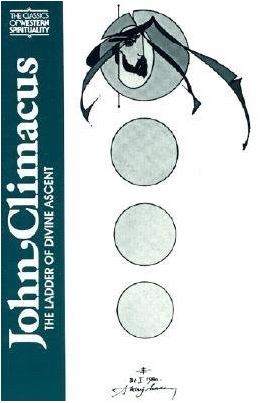

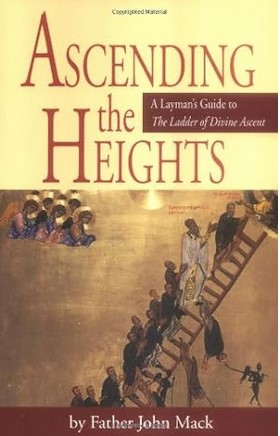
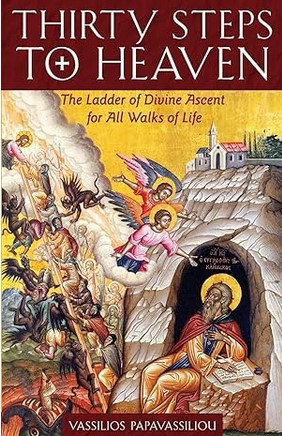
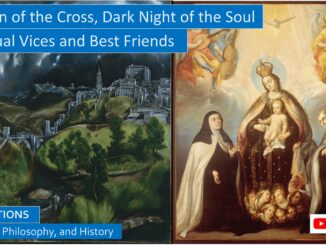
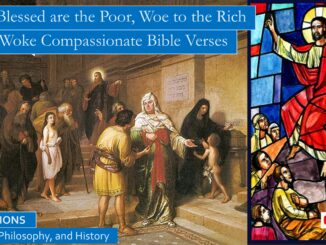
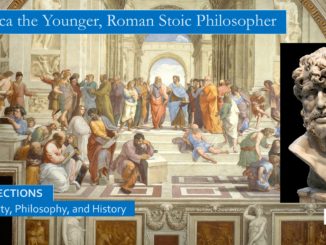
3 Trackbacks / Pingbacks